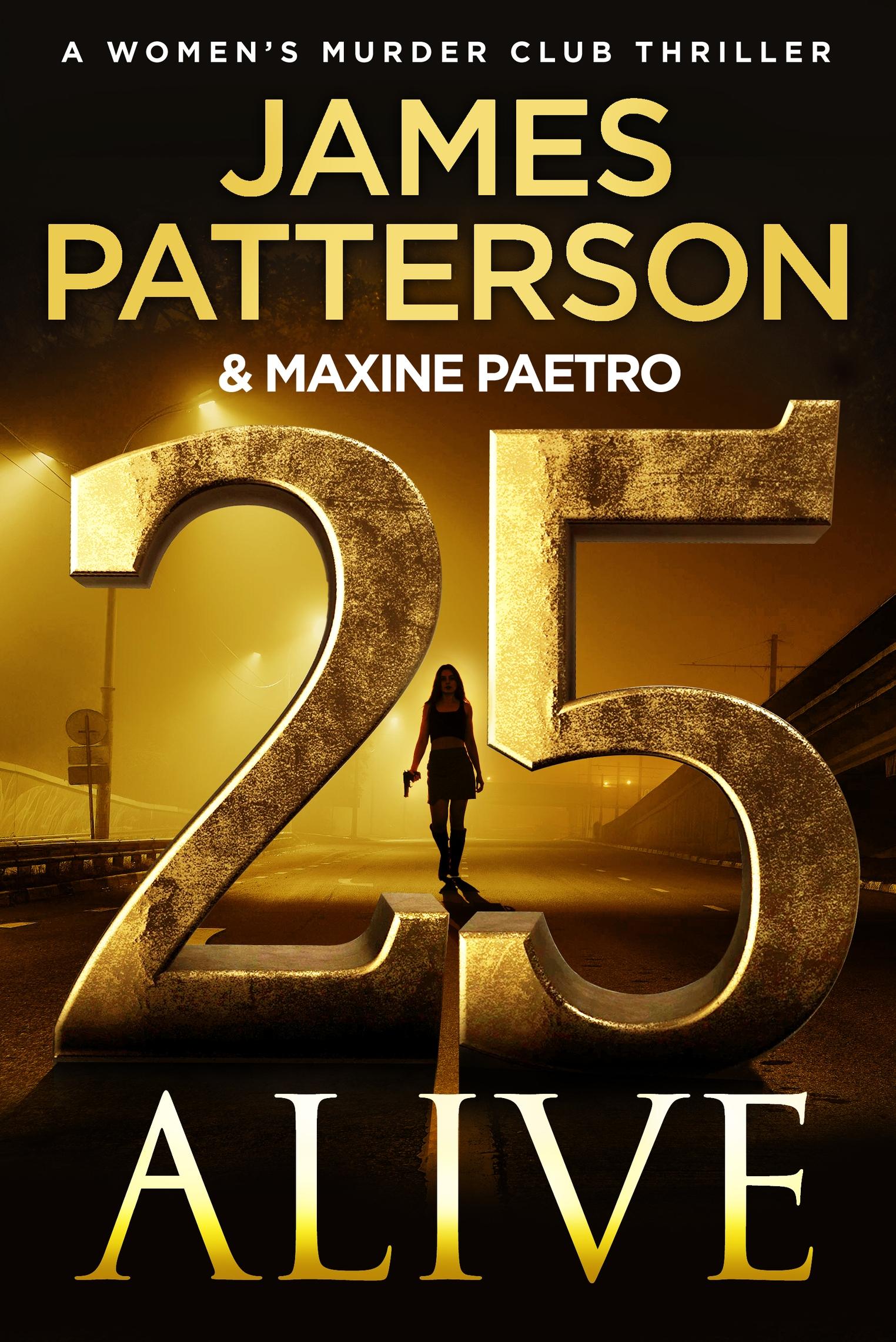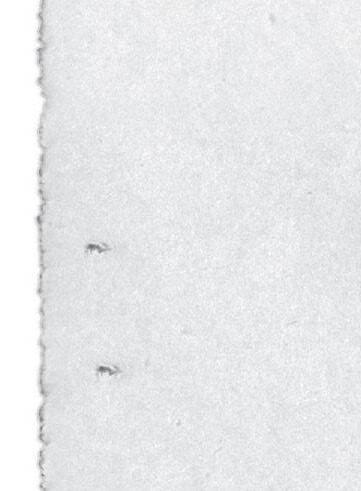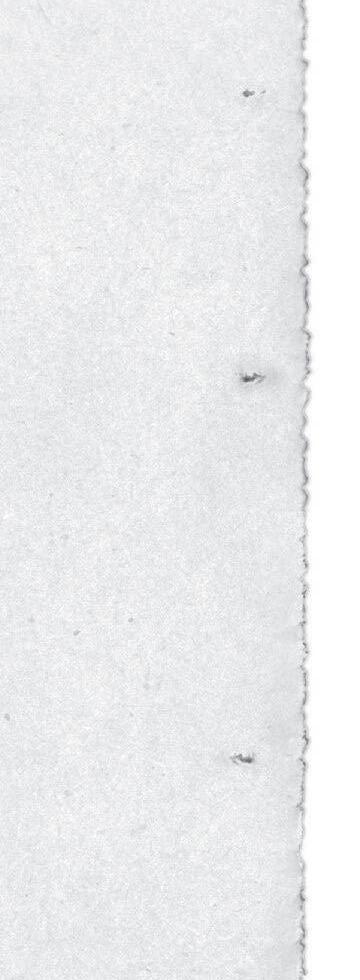










EXCLUSIVE




detective
A homicide detective in the San Francisco Police Department, juggling the worst murder cases with the challenges of being a first-time mother. Her loving husband Joe, daughter Julie and loyal border-collie




Chief Medical Examiner for San Francisco and one of Lindsay’s oldest friends. Wise, confident and viciously funny, she can be relied on to help whatever the problem. She virtually runs the Office of the Coroner for her overbearing, credit-stealing
Martha give her a reason to protect the city. She didn’t have the easiest start to life, with an absent father and an ill mother, but she didn’t shy away from a difficult and demanding career. With the help of her friends, Lindsay makes it her mission to solve the toughest cases.
San juggling of a Her easiest away and career. her to solve Wise, she





boss, but rarely complains.
Happily married with to


children, her personal life is relatively calm in comparison to her professional life.
boss, but rarely complains. Happily married with children, her personal life is relatively calm in comparison to her professional life.



who’s always looking for the next big story. She’ll go the extra mile, risking life and limb to get her scoop. Sometimes she prefers to grill her friends over cocktails for a juicy secret, but, luckily for them, she’s totally trustworthy (most of the time...). She somehow found the time to publish a book between solving cases, writing articles for the San Francisco Chronicle and keeping together her relationship with Lindsay’s partner, Rich Conklin.
One of the best lawyers in , she’s desperate to make her mark. Ambitious, intelligent and passionate, she’ll fight for what’s right, always defending the underdog even if it means standing in the way of those she loves. Often this includes her husband –who is also Lindsay’s boss –complains. married life life. for risking luckily to book


who’s always looking for the next big story. She’ll go the extra mile, risking life and limb to get her scoop. Sometimes she prefers to grill her friends over cocktails for a juicy secret, but, luckily for them, she’s totally trustworthy (most of the time...). She somehow found the time to publish a book between solving cases, writing articles for the San Francisco Chronicle and keeping together her relationship with Lindsay’s partner, Rich Conklin.
When you friends you can count
your job is murder, you need count on
An up-and-coming journalist She’ll and get scoop. she her friends for somehow the keeping the city passionate, always defending the those Often Lt. Jackson Brady.



CASTELLANO make and right, if standing includes her boss –your job is murder, you need count on

One of the best lawyers in , she’s desperate to make her mark. Ambitious, intelligent and passionate, she’ll fight for what’s right, underdog even if it means standing in the way of those she loves. Often this includes her husband –who is also Lindsay’s boss –


















































A list of titles by James Patterson appears at the back of this book

PENGUIN BOOK S
UK | USA | Canada | Ireland | Australia India | New Zealand | South Africa
Penguin Books is part of the Penguin Random House group of companies whose addresses can be found at global.penguinrandomhouse.com
Penguin Random House UK, One Embassy Gardens, 8 Viaduct Gardens, London SW11 7BW
penguin.co.uk global.penguinrandomhouse.com
First published by Century 2025
Published in Penguin Books 2025 001
Copyright © James Patterson, 2025
Extract from The Imperfect Murder © James Patterson, 2025
The moral right of the author has been asserted
Penguin Random House values and supports copyright. Copyright fuels creativity, encourages diverse voices, promotes freedom of expression and supports a vibrant culture. Thank you for purchasing an authorised edition of this book and for respecting intellectual property laws by not reproducing, scanning or distributing any part of it by any means without permission. You are supporting authors and enabling Penguin Random House to continue to publish books for everyone. No part of this book may be used or reproduced in any manner for the purpose of training artificial intelligence technologies or systems. In accordance with Article 4(3) of the DSM Directive 2019/790, Penguin Random House expressly reserves this work from the text and data mining exception.
Set in 11.25/15.34pt Janson MT Std Typeset by Six Red Marbles UK, Thetford, Norfolk
Printed and bound in Great Britain by Clays Ltd, Elcograf S.p.A.
The authorised representative in the EEA is Penguin Random House Ireland, Morrison Chambers, 32 Nassau Street, Dublin D02 YH68
A CIP catalogue record for this book is available from the British Library
ISBN: 978–1–804–94897–2
Penguin Random House is committed to a sustainable future for our business, our readers and our planet. This book is made from Forest Stewardship Council® certified paper.
This book is dedicated with our thanks to our readers, the uno cial members of the Women’s Murder Club.

JUST AFTER SIX that morning, Warren Jacobi, a sixtyyear- old retired homicide lieutenant and former chief of police, parked his Ford F-150 within walking distance of one of the eastern entrances to Golden Gate Park.
Jacobi was edgy in the best possible way, amped up, excited, feelings he hadn’t had in years. Today was the day. After weeks of planning and tracking, within the next hour, he would bring down a killer.
He was a big man, 240 pounds, but he’d stayed in shape. This morning, he wore his bird-watching gear, camouflage pants, and a matching sweater under his tac vest. Binoculars hung from a strap around his neck, and his weapon was wedged against the small of his back by the waistband of his pants.
Jacobi entered the park, keeping to the tree shadows, looking for a merciless killer who delighted in outfoxing the police. Jacobi had to do this alone, and he could—but he was still haunted by the bureaucratic bull crap that had
forced him into early retirement. He hadn’t been able to shake the humiliation. Bottom line, he would not, could not, close out his life’s work by leaving this psychotic predator at large.
Jacobi quickly slipped into a narrow pocket of rampant vegetation, a cleft in the living walls of dense vines and saplings. Inside this natural bivouac, he was virtually invisible but had partial views of the path looping around the Lily Pond below and back up to the street.
Years ago, he’d been walking the park when he saw a man acting suspiciously near the Lily Pond. When a teenage girl’s dead body was pulled from the pond later that day, Jacobi knew what he’d witnessed—and what he’d failed to do earlier. He’d been too far away, and it had happened too quickly, for him to even make an ID.
Parting branches and peering around a clump of trees now, Jacobi saw a great blue heron swoop down between the treetops and veer toward the pond. Through the zoom lens in his phone, Jacobi followed the large heron’s flight path, then took pictures of the bird with its dark crown and long gray plumes on its breast. Below the heron, at the edge of the pond, Jacobi spotted his subject wearing a dark windbreaker, jeans, and a dark-colored baseball cap. The killer took a gun from his pocket and threw a shot at the bird. The bird veered away at the sound, and the shooter tossed the gun into the water. There was a splash, and then he turned on the path and slowly began to retrace his steps uphill.
Jacobi waited impatiently. He didn’t have the authority to perform an arrest, but the former detective had zip ties in his
vest pocket. Jacobi planned to surprise the guy as he walked past his hidey-hole and bodycheck him to the ground. Then, once he’d immobilized the SOB , he’d call Chief of Police Charles Clapper to let him know that he had a wanted killer secured and ready for roasting.
WARREN JACOBI PATTED his vest’s breast pocket and pulled out a tangle of zip ties, accidentally snagging the rest of the pocket’s contents at the same time. Never mind. He shut o his phone’s flash and took a few shots of the killer climbing the path. Then Jacobi paused to review the photos he’d just taken.
As he’d expected, the light from the faint sunrise behind him had been just bright enough to define plumage on a big freaking bird, but not so bright as to positively ID the killer.
Jacobi slipped the phone into his vest’s side pocket—and that’s when he felt the crushing grip of a hand between his neck and right shoulder. A voice in his ear said, “You think I haven’t seen you tailing me? Don’t turn around.”
He almost recognized that voice. Who?
“Okay, okay. You got me.” Jacobi didn’t dare resist capture with his back turned. He was tensing his muscles, reaching his right hand around toward the gun in his waistband. But before he touched the grip, he felt a searing pain in his lower right side.
Again and again while he was on his knees, then again and again, dropping him face down on the ground.
Jacobi turned his head to see his attacker, then cried out, “ No! ”
He closed his eyes as what felt like a saw ripped through the right side of his neck. His scream was cut short. As he wheezed out his last breath, Warren Jacobi was no longer in the present.
A soft breeze blew across his face, illuminated images strung together in a bright, lightning-like flash. Jacobi saw himself gathering his family into his arms. Putting a hand on his beloved Muriel’s cheek and kissing her. Entering a crime scene in a deep black night with Lindsay Boxer, his ride-ordie former partner. A brilliant sunset lighting up the bay, followed by drinks after work with old friends, his comrades in arms.
He didn’t want to die, not like this. He’d called the chief and told him who had cut him down—hadn’t he?
But then it didn’t matter. He was gone.
THE WINDOW BLINDS were half open, slashing the morning light to ribbons and flinging them into my face. Am I late for work? My phone was on the nightstand, and I picked it up to read the time. No. I had just over an hour to eat, dress, play.
I turned to hug my husband, but he wasn’t there. Lying beside me in the bed was Julie, our five-year-old little girl, clutching her plush stu ed cow she’d named Mrs. Mooey Milkington.
“Hey,” I said, hugging her, “you’re not Joe.”
“Nope,” she said, laughing at me.
“Is he making breakfast?”
“No, Mommy. He had to go out.”
“Out where?” I asked her.
“He took the car,” she said.
Yes, I love her with all my heart, but this complicated daughter of ours is smart as well as so damned cute, she gets away with maddening behavior—all the time.
“Julie, this is what we cops call ‘pulling teeth.’ Just tell me where Dad went and why. Please.”
“Huh? What does ‘pulling teeth’ mean?”
“ ‘Pulling teeth’ means someone is saying as little as possible about what they know, so the other person must really work hard to get their little girl to tell.”
“Ohhhhh,” she said. “So, you want me to say that Daddy took Martha to the vet and he’ll bring breakfast home after?”
Talk of my elderly border collie, Martha, and her veterinarian in the same sentence turned my heart into a fist. I ’ve known Martha longer than I ’ve known Joe. I ’d adopted her from a dog rescue, and it had been love at first sight for both of us. Lately, I ’d been consciously ignoring signs of her aging, of her mortality.
I was scared, but I had to ask.
“Why did Daddy take her to the vet, Julie?”
“I ’m not pulling your teeth, Mommy. Daddy didn’t say why. He just picked Martha up and said he was taking her down to the car.”
“Okay. That sounds . . . I’m sorry.”
“Sorry for what?” Julie asked me.
“For—grrrrr—snapping at you. Okay, we’ve got to get dressed and eat something, then I ’m taking you to the school bus.”
“I don’t know what to wear,” Julie said, bouncing out of bed and running for her room.
I KNEW WHAT to wear. Pushing worry for Martha into the back of my mind, I stripped the dry cleaner’s bag from one of my half dozen pairs of blue trousers. I did the same with a blue striped men’s tailored shirt, and once dressed, stepped into my regulation brown lace-up shoes.
I called Joe’s phone. No answer. Fear was back, morphing into panic. I pressed Redial again. I got his regular upbeat outgoing voicemail message.
I was in the bedroom brushing tangles out of my hair when I heard the front door open and Julie call out, “Daddddddddyyyyy!”
Joe was home, thank God. But Martha wasn’t with him. I came into the kitchen and saw he was scowling as he set a bag of pastries down on the kitchen counter.
“Hon? What’s wrong with Martha?” I asked. He said, “Don’t know. She just seemed . . . lethargic. Doc’s going to run some tests on her.”
I sucked in a breath and Joe came over to give me a big
hug. “Tests are good. Martha is having a CAT scan . . . I ’ll call Dr. Clayton later.”
Julie reached her arms around her father’s waist and said, “Dogs get CAT scans?”
Joe was beginning to explain when my phone buzzed. The text from Claire was brief and urgent.
Call me.
I tapped my phone right away and Claire picked up midring.
“Linds. There’s been a murder. You should come before we move . . . the body.” She yelled away from the phone, “Hey. Step back.” Claire Washburn, San Francisco medical examiner and my BFF, sounded rattled. She came back on the line and told me she was on the path by the Lily Pond in Golden Gate Park, and that I should hurry. What the hell?
“On my way,” I told her. Now that Joe was back home, he could handle getting Julie o to school.
I took my Glock from our gun safe, shrugged on my shoulder holster, and slid the weapon into place. As I was hanging the chain with my badge over my head, Joe called out that he’d brought crullers and had put the co ee on. I called back that I was needed at work.
“Please call me as soon as you know something about our good dog,” I said as I hurried into the kitchen to say good-bye before leaving.
“The tech won’t be in until this afternoon,” Joe pointed out.
I nodded. I kissed my husband, then stooped to kiss our little girl on each cheek, checking for tears shed over Martha. None yet. I squeezed Julie’s shoulders, and she hugged me
hard around my neck. I murmured that Martha would be home soon, then stood up and kissed Joe again. I felt two pairs of eyes on me as I made for the door. I fled down the stairs to the street.
I PHONED MY boss, Jackson Brady, from the car to let him know that Claire had called me to a murder scene at Golden Gate Park. “She wants me to see the body in situ in the park, ASAP.”
Brady said, “Check in with me when you get there. I don’t know squat about this homicide.”
I copied that and strapped in. I took a quick detour on my way to the park, stopping at the car pool in front of the Hall of Justice just long enough to exchange my blue Explorer for a squad car. I translated Claire’s urgency as Code 3, meaning all lights, sirens, and maximum speed.
The street that accessed the park’s Lily Pond was blocked by three squad cars, and both the Forensics unit and the coroner’s van. I pulled up to the curb, disembarked, and followed a spur of pavement to a parking area that was cordoned o with yellow barrier tape—a warning to joggers and curiosity seekers to stay the hell out.
I badged a uniform named Maggie Cannon. She held up
the tape and gave me a warning look, like I was headed toward a five-car pileup. I didn’t question her, just ducked under the tape and kept going. I found Claire standing with four uniformed o cers inside a smaller taped-o perimeter within the larger one. Even from a dozen paces, I could see that the victim was lying face down in a pool of blood.
“Who’s in charge?” I asked.
“I just spoke to Brady,” said Claire. “You’re it.”
I knew two of the uniforms protecting the scene: sergeants Nardone and Einhorn. I texted Brady to give him an update and gloved up.
Einhorn handed me a pair of booties, and Nardone said, “Lean on me,” which I did as I slipped the booties over my shoes.
I entered the smaller perimeter and looked at Claire. She shook her head and said of the victim, “I just can’t believe this. It’s . . . it’s so bad . . . ” Her voice cracked.
I didn’t understand what she’d said. “Are you okay, Claire?”
She didn’t answer me, just looked down at the dead man, whose face was turned away from me. I could see that he had bled profusely from wounds in his lower back, and from a ragged tear halfway around his neck and face. The only other things I could really determine from where I stood was that he was a gray-haired white man dressed in camouflage pants, a matching sweater, a tactical vest, and rubber-soled shoes. A CSI flag was next to a pair of binoculars lying just outside the tape, half hidden in the shrubbery. Was this guy a bird-watcher?
Claire’s primary investigator, Sage Dugan, had stooped beside the body and was taking photos. Since Claire seemed unresponsive, I asked Dugan, “Did he have a camera?”
“If he had one, it’s gone,” she said. “Just a cell phone. And the binoculars are not the photographic kind.”
“Any sign of the murder weapon?”
The CSI held out a plastic evidence bag with a knife inside. It was a KA -BAR and it was made for killing. The blade was sturdy, good for jabbing and slashing. The handle was equal in length to the blade, rounded for a firm grip and designed for bludgeoning.
I remembered that there’d been some holdups in this neighborhood. A masked robber, or a pair of them, had stolen expensive camera gear—thousand-dollar cameras with German lenses—but nothing more violent had been reported than shouts of “Don’t make me hurt you! Hand over the camera!”
“We’ve got his wallet?” I asked.
Claire spoke up. “No wallet. Had some loose cash and credit cards, and an ID in his vest pocket. He’s carrying, too, but the gun is still in his waistband.” She paused, then said, “Linds. This is going to hurt.”
I don’t know the victim—do I? Something was trying to break through the smoke screen obscuring much of my working memory.
Claire called my name, and I turned to her.
“What is it, Claire? Who is the victim?”
She sputtered, then said, “It’s Warren Jacobi. He was . . . killed.”
I STARED AT the dead man, but I didn’t believe what Claire had told me. I said, “This can’t be Jacobi. He . . . He . . . He’s retired.”
“I ’m so, so sorry, Linds,” said Claire.
She put her arms around me. Her sobs released mine, and Claire and I both cried into the other’s shoulder until, somehow, I finally accepted the unimaginable.
When we let go, Claire asked, “Can you handle this?”
“No. But I have to.”
Another tidal wave of disbelief and grief washed over me. I loved Jacobi. He’d been my first partner in the Homicide squad. Everything I hadn’t learned in the Academy, he’d taught me by example at crime scenes or explained to me inside a patrol car. We’d bonded early, and our deep friendship had continued before and after he cut loose from his job, his career, his reason for being.
And now Warren Jacobi was dead, lying curled up at my feet. I leaned down and put my hand on his shoulder.
“I ’m so sorry this happened to you, my dear friend,” I said, looking into my former partner’s face. “You have good friends working to find out who did this to you. And that person who did this will damn well pay. I hope that you know I ’m here.” I smoothed his hair and kept my hand on his forehead. I couldn’t be sure if it was true or my imagination, but I thought he still felt warm. Everyone around me was quiet. I took another moment to pray, and when I said, “Amen,” the little group echoed that solemn word.
Then I inspected Jacobi’s injuries, snapping photos with my phone. My vision was blurred by tears, but from what I could see of the degree and angles of his wounds, Jacobi hadn’t seen the attack coming. He hadn’t even pulled his piece. From what Claire had told me so far, this assault didn’t sound like a robbery.
But then why? What had been the killer’s motive? Had it been a personal beef? Someone who’d hated Jacobi? Or was my old friend a victim of circumstance?
I turned and asked Claire, “What do we know?”
CLAIRE CLEARED HER throat, then ran the facts.
“Time of death, approximately two, two and a half hours ago, so, say 6 something a.m. The killer surprised him from behind and knew how to use a blade.”
Einhorn said, “Plus a matchbook we found in the ferns over there.”
“Let me see.”
CSI Dugan opened her kit and held up a small, clear plastic evidence bag containing a matchbook with julio’s printed on the cover. I recognized the design. It matched the look of the sign belonging to a dark hole of a bar on Valencia Street at the edge of the Mission District. I ’d driven past it but never been inside.
“Don’t know if it belonged to the victim or it’s been there for days. But either way, it’s interesting,” Dugan said. “Look at the writing inside.”
I managed to open the matchbook without removing it from the evidence bag and saw that someone had used
a ballpoint pen to inscribe a message in block lettering on the inside cover. I could just make out the words: I SAID.
What? What the hell does that mean?
I handed the bagged matchbook back to Dugan and addressed the people around me. “ ‘I said. You dead.’ We’re assuming this was left here by the killer. Is the killer bragging? Fulfilling a prophecy? Has anyone heard this statement before?”
There were no ideas at that moment, but we were just getting started.
I edged out of the scene to let the CSI s and the Forensics unit do their work as ME’s team raised the tape, hefted Jacobi’s body onto a gurney, and rolled it toward the van.
I walked like a zombie to my squad car. I turned it on, released the brake, backed up, then headed east on Nancy Pelosi Drive and toward the Hall of Justice.
At a stoplight, my mind was flooded with fresh images of Jacobi’s lifeless, bloodied body, the horrible sight of his head half sawn o by a strong hand with a killing knife. Tears spilled and I didn’t try to stop them. Warren Jacobi had been a great cop as well as my mentor, partner, and friend to the end.
That made his murder personal.
WHEN I REACHED the Hall of Justice, I took the stairs three flights up from the lobby to the Homicide squad room. I yanked open the wood- framed glass outer door, bumped the hinged gate with my hip, and entered our small bullpen, a study in its many shades of gray. The day shift was filling the room with the crackle and buzz of conversation. Telephones rang at every desk.
Our front desk guard dog, Robert Nussbaum, was at his station.
I asked, “Is Brady in?”
“And good morning to you, Sarge.”
“Too late for that, Bob. But thanks.”
He pointed down the center aisle to the glass-walled o ce at the far end of the squad room. Jackson Brady was visible, leaning back in his chair with his phone to his ear. I waved to Richie Conklin and Sonia Alvarez as I rounded the turn, then started down the aisle. I nodded to Wang and Michaels, narrowly missed bumping into Samuels, and kept going.
The glass door to Brady’s o ce was closed, but I could also see Assistant District Attorney Yuki Castellano, Brady’s wife and my dear friend, sitting inside on a side chair, wearing a smart, gray, grown-up pin-striped suit and three-inch heels.
“Hey,” I said to Brenda Fregosi, Brady’s assistant. “I like your hair.”
Two long blond braids hung down her back.
“Thanks, Lindsay. Can I do something for you?”
“I have to see the lieutenant. How long before he’s free?”
She shrugged. “I never know.”
That’s when Brady hung up his phone. Yuki got to her feet, spoke to him briefly, then leaned down and kissed him goodbye. Our paths met in the doorway, and she gripped my hand.
“Oh God, oh God,” said Yuki. “Brady just told me about Jacobi. I cannot believe it. Why would anyone kill him?”
“Not a clue,” I said. “Really. I never expected anything like this. He should have had another twenty-five years.”
“At least. Call me when you can,” Yuki said.
Brady keyed his intercom and asked Brenda to hold his calls.
Then he waved me into his o ce.